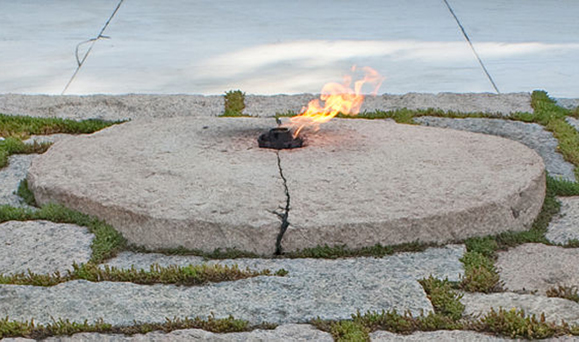The First Word, by Patricia Harty.
“Cuimhnígí ar na daoine ar tháinig sibh.” (Remember the people from whom you came.)
– Irish America Hall of Fame motto
It’s that time of year when everyone is a little bit Irish, and a good time to reflect on the very special relationship between Ireland and Irish America.
I remember as a young immigrant how wonderful it was to discover that in America being Irish was special. And it wasn’t just Irish Americans who seemed to appreciate my Irish culture and heritage, it came from many different quarters.
Not that it happened overnight. In the words of Robert Kennedy: “As the first of the racial minorities our forefathers were subject to every discrimination found
wherever discrimination is known.”
And we do not forget the struggles of those early immigrants as we celebrate our Hall of Fame inductees (as Donald Keough, our first Hall of Fame inductee said, “The real members of the Hall of Fame are those ancestors who had the courage to come here.”)
This issue, then, is one of remembering, and each story touches on our history: From medieval Ireland when monks lived in beehive huts on Skellig Michael (which are amazingly well preserved), to the great starvation that began in 1845, to the founding of the U.S. Friendly Sons of St. Patrick’s, the benevolent society that helped ease the plight of poor Irish immigrants.
A story on Irish-American sculptor James Kelly calls to mind the many Irish who died fighting in the Civil War, while the tale of Xavier H.S.’s Knights winning the Catholic High School Football League trophy just weeks after 11 Knights were displaced by Superstorm Sandy, reminds us of the part Catholic education played in the Irish American story.
(How delightful it is to find a Catholic institution still turning out fine young men such as those profiled in our story.)
And as with so many Irish stories, there are common threads moving through each of ours. For example, in the feature on the Vice President’s Irish roots, we find that both he and President Obama had Irish ancestors who landed in New York in 1847 within weeks of one another. And they were both shoemakers!
We also learn that Biden’s great-grandfather was a founding member of the Scranton branch of the Friendly Sons, at whose annual St. Patrick’s dinner Robert Kennedy spoke those words about discrimination. It was his first public appearance after the death of his brother John. (It was to the same Friendly Sons that a young Senator Biden spoke on St. Patrick’s Day in 1973 just a couple of months after the tragic death of his first wife and daughter.)
Though our history is layered with tragedy, in our Irish way we choose to celebrate life.
As Vice President Biden said in an earlier interview with Irish America, “There is something about the Irish that knows that to live is to be hurt, but we’re still not afraid to live.”
Perhaps no other family embodies this better than the Kennedys. As this year marks the 50th anniversary of the death of President John Kennedy, we celebrate his life, and his historic visit to Ireland in June 1963, in a story called “I’ll be back in the springtime.”
On June 21st this year, a great number of the Kennedy family will arrive in New Ross, County Wexford, to kick off two weeks of festivities that will culminate in Irish America Day on July 4th.
The celebrations will include the opening of the new visitors’ center at the Kennedy homestead; a tree planting in the JFK Arboretum by former Ambassador to Ireland Jean Kennedy Smith in memory of her brother Senator Ted Kennedy; and on June 22nd, Caroline Kennedy will light an eternal flame in front of the Dunbrody Famine Ship & Irish Emigration Experience where our Irish America Hall of Fame has a physical presence.
Fittingly, this flame, taken from the eternal flame in Arlington Cemetery, will be called the Emigrants’ Flame.
It will burn in memory of Patrick Kennedy, Caroline’s great-great-grandfather who left New Ross in 1849, and of Donald Keough’s great-grandfather Michael, who left from the same quay that same year, and all the other thousands of Irish who left from every corner of Ireland during that hard time. (Patrick Kennedy would die of cholera just eight years after arriving in Boston, leaving his wife Bridget Murphy with five children.)
It would seem that all our struggles – invasions, starvations, emigrations, wars, discrimination, and loss of loved ones – have left us with an empathy for others. That is a legacy we can be truly proud of. We see that empathy shining in generations of Kennedys, in the benevolence of Joe Biden’s great-grandfather, and in the good works carried out today by our Hall of Fame inductees.
As Robert Kennedy said when he spoke at that Friendly Sons dinner in Scranton all those years ago: “So, on this St. Patrick’s evening let me urge you one final time to recall the heritage of the Irish. Let us hold out our hands to those who struggle for freedom today – at home and abroad – as Ireland struggled for a thousand years.”
Mortas Cine.


Leave a Reply